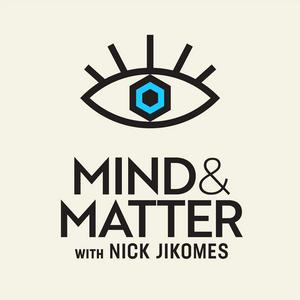Appendix, Gut Worms, Allergies & Autoimmunity | William Parker | 246
Send us a textThe appendix's hidden role and how "good" parasites like helminths shape immune health.Episode Summary: Dr. William Parker discusses gut anatomy, the appendix's role in harboring beneficial bacterial biofilms and immune tissue, and how modern hygiene depletes helminths (intestinal worms), causing immune overreactions like allergies, autoimmunity, and psychiatric conditions. He explores helminth self-therapy for treating relapsing MS, depression, and allergies; challenges in clinical trials due to patent issues; and why COVID-19 was milder in low-income, helminth-rich regions.About the guest: William Parker, PhD conducted research at Duke University for over 27 years on immunology, appendicitis, and the hygiene hypothesis. After retiring from Duke, he serves as a visiting scholar at the University of North Carolina at Chapel Hill, leading efforts on biome reconstitution via helminths.Discussion Points:Appendix is not vestigial; it concentrates immune tissue and biofilms to cultivate good gut bacteria, preventing pathogens via mucus and IgA antibodies.Hygiene hypothesis: Soap, toilets, and clean water reduce helminths/protozoa, leading to untrained, hyperactive immunity and rising allergies/autoimmunity since the 1800s.Helminths (worms) stimulate immune "exercise," training immunity; biohackers use hookworms (cheap, skin-entry), porcine whipworms, or rat tapeworms orally for relief from allergies, MS flares, depression/anxiety.Effects are temporary; need ongoing exposure (e.g., replenish every 6 months); immigrants from helminth-rich areas develop Western diseases within a few years.COVID-19: Hyper-immunity caused severe reactions in hygienic West, but helminth presence in low-income Africa/Asia prevented cytokine storms, leading to empty clinics.Therapy barriers: Non-patentable organisms require $100M+ trials; push for open-source, government-funded biome restoration over crude immunosuppressants.Related episode:M&M 144: Inflammation, Innate Immunity, Allergies & Allergens, Immune System Evolution, Fasting & Metabolism | Clare Bryant*Not medical advice.Support the showAffiliates: Seed Oil Scout: Find restaurants with seed oil-free options, scan food products to see what they’re hiding, with this easy-to-use mobile app. KetoCitra—Ketone body BHB + electrolytes formulated for kidney health. Use code MIND20 for 20% off any subscription (cancel anytime) Lumen device to optimize your metabolism for weight loss or athletic performance. Code MIND for 10% off SiPhox Health—Affordable at-home blood testing. Key health markers, visualized & explained. Code TRIKOMES for a 20% discount. For all the ways you can support my efforts


